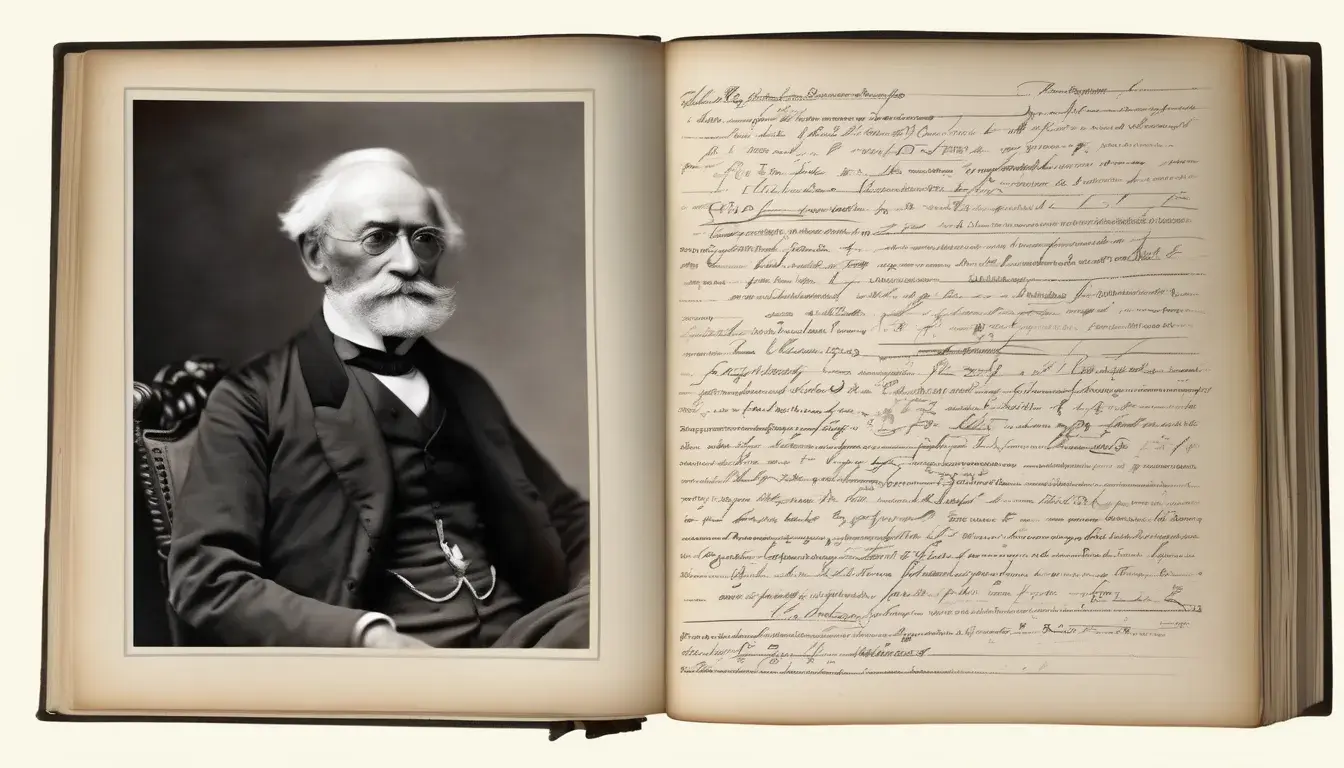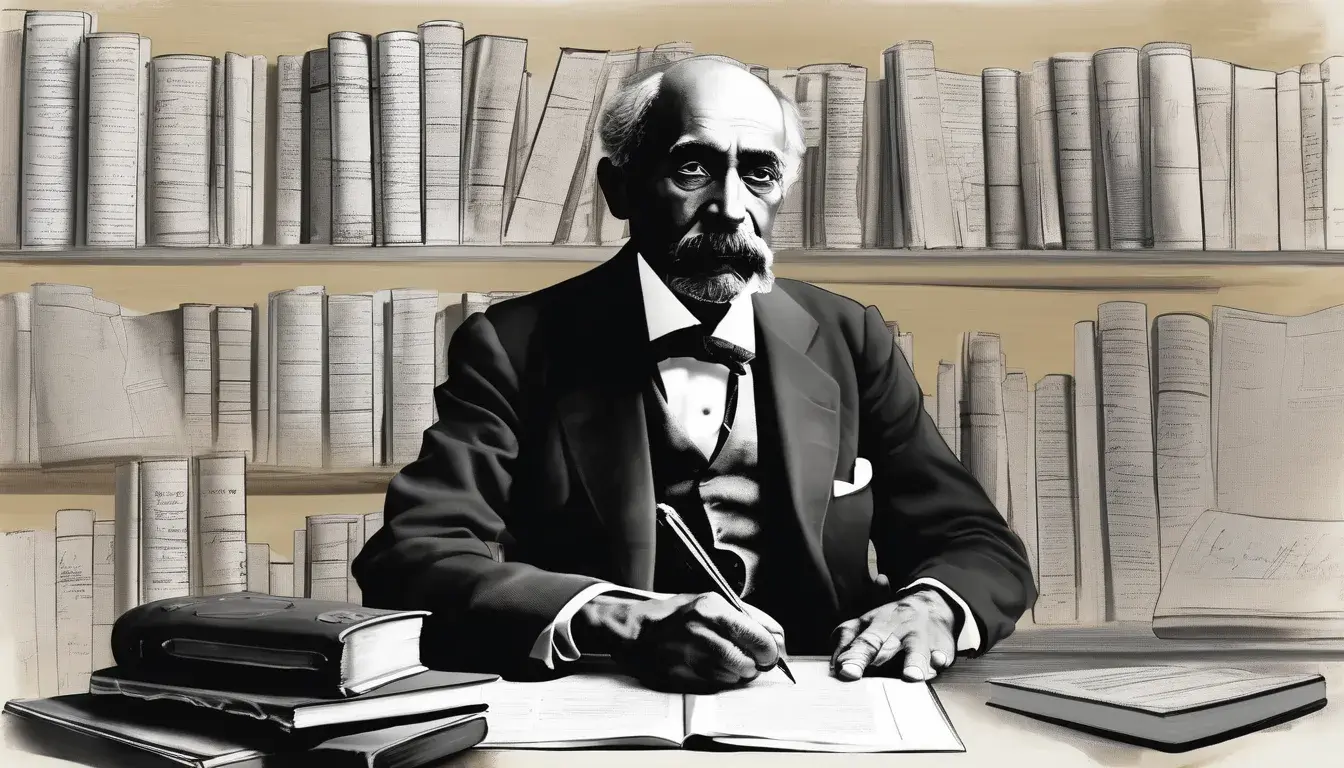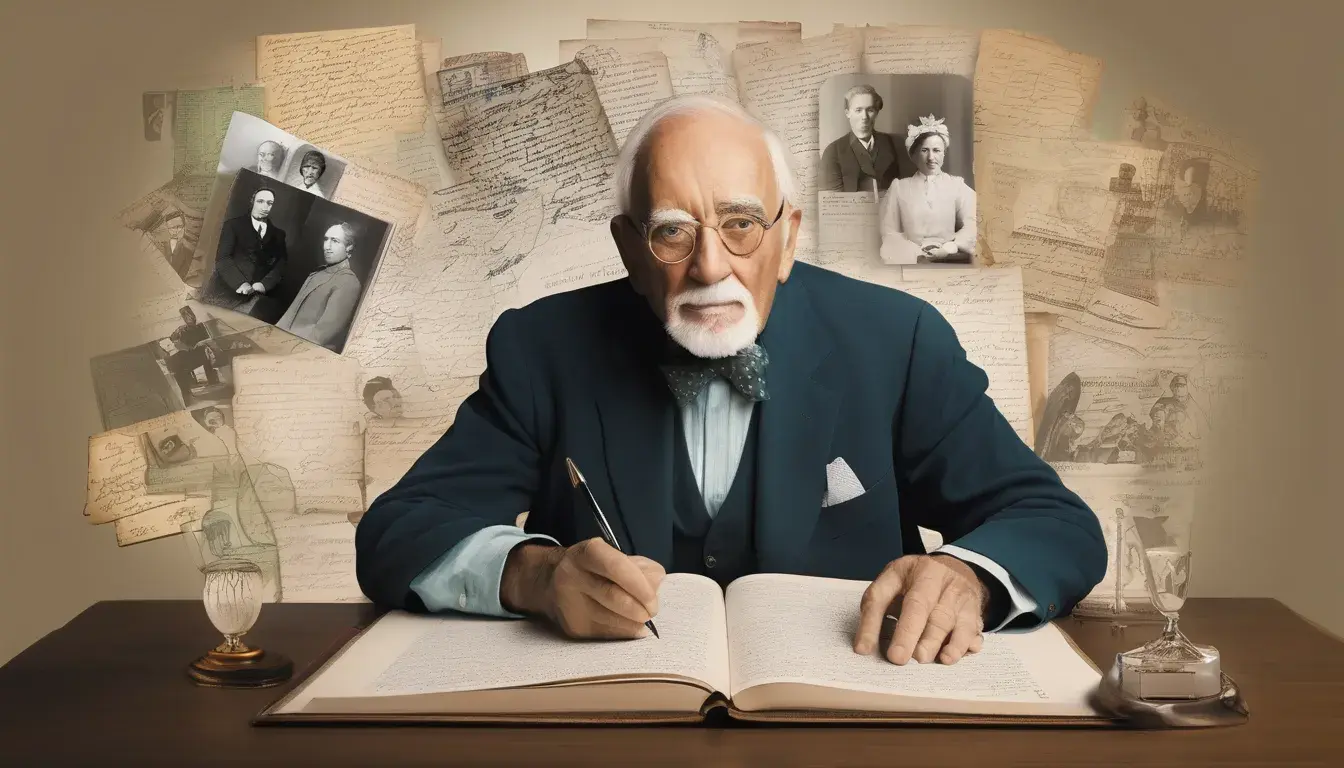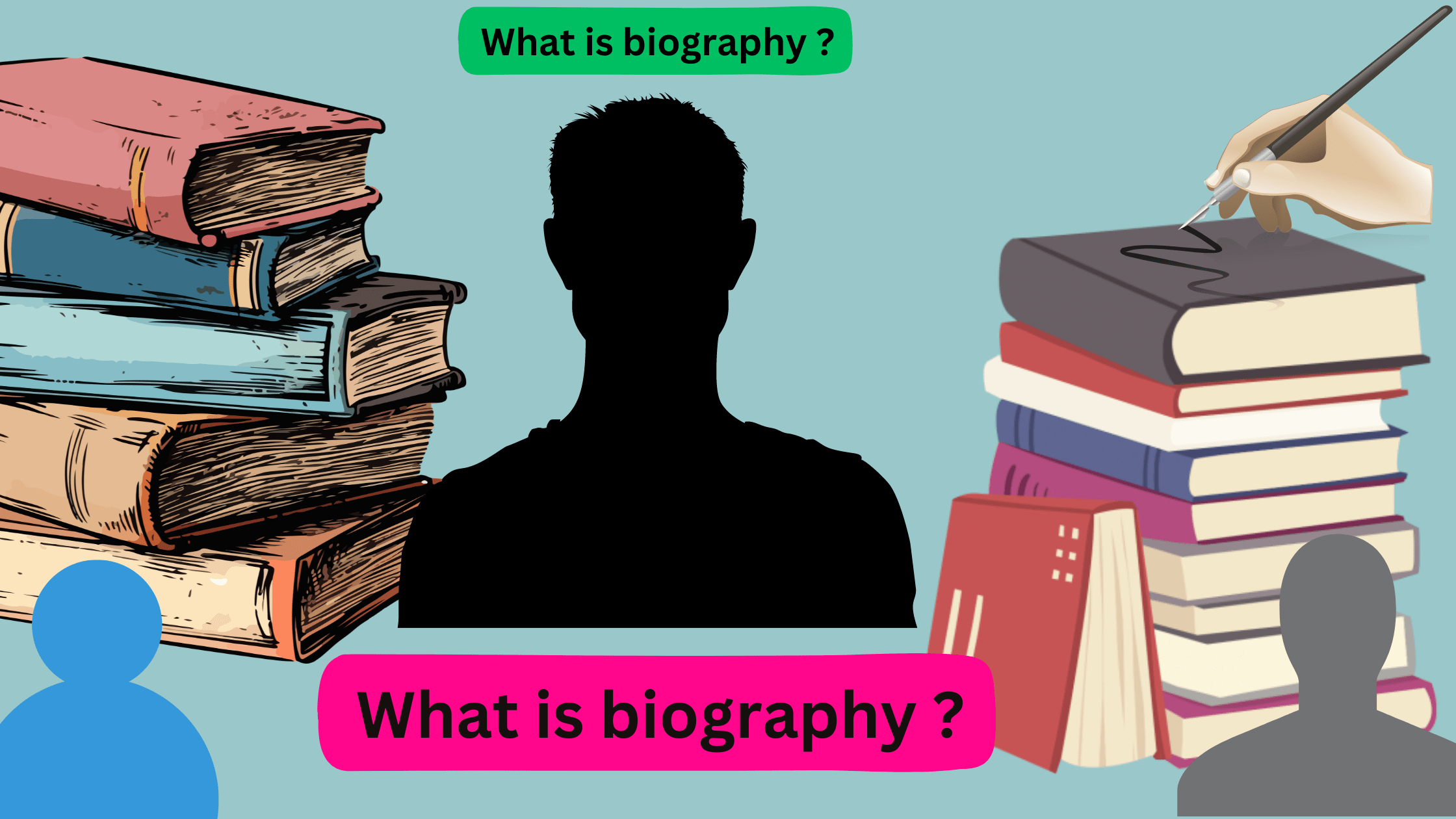Writing Biographies of Extraordinary Lives
Are you fascinated by extraordinary lives? Do you find yourself captivated by the stories of people who have achieved remarkable success or overcome great challenges? If so, then writing biographies of these extraordinary individuals may be the perfect outlet for your creativity and curiosity.
In this article, we will explore the art of crafting engaging biographies that not only capture the essence of a person’s life but also resonate with readers. Whether you aspire to write a biography of a historical figure, a modern-day hero, or even a beloved celebrity, we will provide you with the tips and techniques to bring their stories to life.
From conducting thorough research and interviewing key sources to structuring your narrative and infusing it with rich details, we will guide you through the process of creating compelling biographies that both inform and entertain. We will also delve into the significance of accuracy and the ethical considerations that come with writing about someone’s life.
So, if you’re ready to dive into the extraordinary world of biographies, let’s begin this exciting journey together.
The importance of biographies
Biographies hold a unique and powerful place in the realm of literature and storytelling. They offer us a window into the lives of remarkable individuals, allowing us to gain a deeper understanding of their motivations, struggles, and triumphs. Through the lens of a biography, we can witness the human experience in all its complexity, from the heights of success to the depths of adversity.
Exploring the lives of extraordinary people can inspire us to push the boundaries of our own potential. By understanding the challenges they faced and the choices they made, we can gain valuable insights that can shape our own personal and professional journeys. Biographies have the power to challenge our preconceptions, broaden our perspectives, and ignite a sense of wonder and admiration for the human spirit.
Moreover, biographies play a crucial role in preserving and transmitting historical and cultural knowledge. They serve as a bridge between the past and the present, allowing us to learn from the experiences of those who have come before us. By illuminating the lives of influential figures, biographies can shape our understanding of important events, movements, and societal changes, ultimately enriching our collective knowledge and shaping the narratives that define our shared history.
Choosing a subject for a biography
Selecting the right subject for a biography is a crucial first step in the writing process. The individual you choose to write about should not only captivate your own curiosity and imagination but also have a compelling story that will resonate with your readers.
When considering potential subjects, look for individuals who have made significant contributions to their field, overcome extraordinary challenges, or embodied unique perspectives that offer valuable lessons. These could be historical figures, contemporary leaders, artists, scientists, or even ordinary people who have achieved extraordinary feats.
It’s important to ensure that your chosen subject has a life story that is rich in detail, nuance, and complexity. The most engaging biographies often explore the multifaceted nature of their subjects, delving into their personal lives, relationships, and the broader societal and historical contexts that shaped their experiences. By choosing a subject with a multidimensional narrative, you can create a biography that is both informative and deeply engaging for your readers.
Conducting research for a biography


Crafting a comprehensive and well-researched biography requires a meticulous approach to information gathering. The depth and accuracy of your research will be the foundation upon which you build your narrative, so it’s crucial to leave no stone unturned.
Begin by immersing yourself in primary sources, such as personal journals, letters, and official records, to gain a firsthand understanding of your subject’s life and experiences. Interviews with family members, close friends, and colleagues can also provide invaluable insights and personal anecdotes that add depth and authenticity to your narrative.
As you delve deeper into your research, be sure to consult a wide range of secondary sources, including biographies, academic articles, and historical accounts. This will help you contextualize your subject’s life within the broader social, political, and cultural landscape, allowing you to paint a more comprehensive picture of their journey.
Throughout the research process, be mindful of maintaining objectivity and verifying the accuracy of the information you gather. Cross-reference multiple sources, fact-check claims, and be prepared to adjust your understanding as new evidence emerges. This commitment to accuracy and impartiality will ensure that your biography is a reliable and trustworthy resource for your readers.
Organizing the structure of a biography
Crafting a well-structured biography is essential for guiding your readers through the narrative in a coherent and engaging manner. While there is no one-size-fits-all approach, there are several common organizational strategies that can help you bring your subject’s life story to life.
One popular structure is the chronological approach, which follows your subject’s life in a linear fashion, from birth to death. This method allows you to trace the key events, milestones, and turning points that shaped their journey, providing a clear and logical progression for your readers.
Alternatively, you may choose to organize your biography thematically, grouping related events and experiences around central themes or defining moments in your subject’s life. This approach can be particularly effective in highlighting the underlying motivations, values, and personal growth that drove your subject’s actions and decisions.
Regardless of the structure you choose, it’s important to maintain a balance between providing a comprehensive overview of your subject’s life and delving into the most compelling and impactful moments. By carefully selecting the pivotal events and experiences to feature, you can create a narrative that is both informative and captivating, drawing your readers deeper into the story.
Highlighting key events and achievements
At the heart of every engaging biography lies the careful selection and vivid portrayal of the key events and achievements that defined your subject’s life. These moments serve as the anchors of your narrative, allowing you to showcase the individual’s character, resilience, and impact on the world around them.
When highlighting these pivotal moments, strive to strike a balance between providing sufficient context and detail to fully immerse your readers, while also maintaining a brisk pace that keeps the story moving forward. Utilize vivid language, sensory descriptions, and dialogue to bring these events to life, transporting your readers to the time and place where they unfolded.
Pay particular attention to the turning points and defining moments that shaped your subject’s trajectory, whether they were triumphs, failures, or unexpected twists of fate. By delving into the emotional and psychological dimensions of these experiences, you can create a deeper connection between your readers and your subject, fostering a greater understanding of their motivations, decision-making, and personal growth.
Furthermore, be sure to emphasize the lasting impact and significance of your subject’s achievements, whether they were groundbreaking contributions to their field, acts of extraordinary courage, or inspirational examples of perseverance in the face of adversity. By highlighting these legacies, you can imbue your biography with a sense of purpose and significance, leaving a lasting impression on your readers.
Including personal anecdotes and insights


While factual accuracy and historical context are essential elements of a compelling biography, it is the inclusion of personal anecdotes and insights that truly bring your subject to life. These intimate details and behind-the-scenes glimpses into your subject’s life can humanize them, fostering a deeper connection between the reader and the individual being profiled.
Seek out personal accounts, letters, and interviews that offer a window into your subject’s thoughts, emotions, and private moments. These can include stories of their childhood, their relationships with family and friends, or their daily routines and idiosyncrasies. By incorporating these personal touches, you can paint a more vivid and multidimensional portrait of your subject, revealing the complexities and nuances that often lie beneath the surface of their public persona.
Moreover, personal anecdotes can be powerful tools for illuminating the motivations, values, and core beliefs that drove your subject’s actions and decisions. By delving into these intimate insights, you can help your readers understand the internal struggles, triumphs, and transformations that shaped your subject’s journey, ultimately creating a more empathetic and relatable narrative.
At the same time, be mindful of maintaining a balance between these personal elements and the broader historical and contextual information that provides essential framing for your subject’s life story. By carefully weaving these different threads together, you can create a biography that is both informative and emotionally compelling, leaving a lasting impression on your readers.
Addressing controversies and challenges
No extraordinary life is without its share of controversies and challenges, and a well-crafted biography must be willing to confront these difficult aspects head-on. By acknowledging and exploring the complexities and contradictions that defined your subject’s journey, you can create a more nuanced and authentic portrait that resonates with readers.
When addressing controversies, it is crucial to approach the subject matter with objectivity and sensitivity. Avoid sensationalism or moralizing, and instead strive to present a balanced and well-researched account of the events, decisions, and circumstances that led to the controversy. This may involve delving into the historical, social, or political contexts that shaped the situation, as well as exploring the perspectives of those involved.
Similarly, when discussing the challenges and obstacles your subject faced, be mindful of the emotional and psychological toll they may have endured. Explore the strategies they employed to overcome adversity, the personal growth they experienced, and the lessons they learned along the way. By humanizing these difficult experiences, you can create a more empathetic and relatable narrative that resonates with your readers.
Ultimately, the ability to navigate these sensitive topics with nuance and insight is a hallmark of a compelling biography. By acknowledging the complexities and contradictions that defined your subject’s life, you can create a more authentic and engaging portrait that captures the full breadth of the human experience.
Capturing the essence of the individual


At the heart of every great biography lies the ability to capture the essence of the individual being profiled – their unique personality, their core values, and the intangible qualities that made them truly extraordinary.
This goes beyond simply recounting the facts and events of their life; it requires a deep understanding of the individual’s motivations, aspirations, and the internal drivers that shaped their decisions and actions. By delving into the psychological and emotional dimensions of your subject’s journey, you can create a portrait that resonates on a deeper level with your readers.
One effective approach is to carefully curate and weave together the personal anecdotes, insights, and observations that reveal the multifaceted nature of your subject. By highlighting the contradictions, complexities, and nuances that defined their character, you can create a vivid and authentic representation that goes beyond the surface-level facts.
Additionally, consider incorporating sensory details, evocative language, and a narrative style that captures the unique rhythm and cadence of your subject’s voice. This can help to transport your readers into the world of your subject, fostering a deeper sense of connection and understanding.
Ultimately, the true mark of a successful biography is the ability to leave a lasting impression on your readers, inspiring them to reflect on the extraordinary lives that have shaped the world around them. By capturing the essence of your subject, you can create a work that not only informs and entertains but also resonates deeply with the human experience.
Conclusion: The impact of extraordinary biographies
The art of crafting engaging and impactful biographies is a powerful tool for illuminating the extraordinary lives that have shaped our world. Through the lens of biography, we can gain a deeper understanding of the human experience, exploring the triumphs, challenges, and complexities that define the journeys of remarkable individuals.
Whether you choose to write about a historical figure, a contemporary leader, or a beloved public figure, the process of researching, organizing, and narrating their life story can be a deeply rewarding and transformative experience. By delving into the personal anecdotes, insights, and defining moments that shaped your subject’s life, you can create a work that not only informs and educates but also inspires and captivates your readers.
Moreover, the power of biography extends beyond the individual being profiled; it has the ability to shape our collective understanding of history, culture, and the human condition. By preserving and transmitting the stories of extraordinary lives, biographers play a crucial role in shaping the narratives that define our shared experience and inspire future generations to push the boundaries of their own potential.
So, if you are drawn to the extraordinary, if you are captivated by the stories of those who have achieved remarkable feats or overcome great challenges, then consider the art of biography as a means of sharing these remarkable lives with the world. Through your words and your vision, you have the power to illuminate the human experience in all its complexity, leaving an indelible mark on the hearts and minds of your readers.



“This post is incredibly helpful! The detailed analysis of biography writing techniques is truly commendable. Especially the methods outlined for engaging readers will be very useful. I’m confident these tips will aid in my next biography writing project. Thank you!”